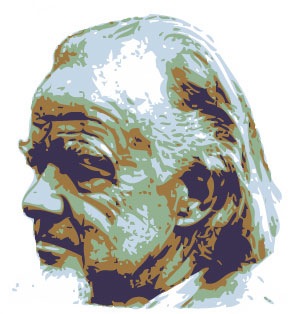Einige Beiträge des Buches Reflections on Francis Schaeffer, herausgegeben von Ronald Ruegsegger, habe ich in Wahrheit und Liebe: Was wir von Francis Schaeffer lernen können, freundlich und klar kritisiert. Viel Lob verdient das Vorwort des Buches, geschrieben von J.I. Packer. Der Beitrag mit dem Titel »No Little Person« wurde inzwischen online veröffentlicht. Hier ein Auszug, den ich im Blog von Justin Taylor gefunden habe.
First, with his flair for didactic communication he coined some new and pointed ways of expressing old thoughts (the “true truth” or revelation, the “mannishness” of human beings, the “upper story” and “lower story” of the divided Western mind, etc.).
Second, with his gift of empathy he listened to and dialogued with the modern secular world as it expressed itself in literature and art, which most evangelicals were too cocooned in their own subculture to do.
Third, he threw light on the things that today’s secularists take for granted by tracing them, however sketchily, to their source in the history of thought, a task for which few evangelicals outside the seminaries had the skill.
Fourth, he cherished a vivid sense of the ongoing historical process of which we are all part, and offered shrewd analysis of the Megatrends-Future Shock type concerning the likely effect of current Christian and secular developments.
Fifth, he felt, focused, and dwelt on the dignity and tragedy of sinful human beings rather than their grossness and nastiness.
Sixth, he linked the passion for orthodoxy with a life of love to others as the necessary expression of gospel truth, and censured the all-too-common unlovingness of front-line fighters for that truth, including the Presbyterian separatists with whom in the thirties he had thrown in his lot.
Seventh, he celebrated the wholeness of created reality under God, and stressed that the Christian life must be a corresponding whole—that is, a life in which truth, goodness, and beauty are valued together and sought with equal zeal. Having these emphases institutionally incarnated at L’Abri, his ministry understandably attracted attention. For it was intrinsically masterful, and it was also badly needed.
So hat Packer den Menschen Schaeffer, »einen der wirklich großartigen Christen seiner Zeit«, beschrieben:
He was physically small, with a bulging forehead, furrowed brow, and goatee beard. Alpine knee-breeches housed his American legs, his head sank into his shoulders, and his face bore a look of bright abstraction. Nothing special there, you would think; a serious, resolute man, no doubt, maybe a bit eccentric, but hardly unique on that account. When he spoke, his English though clear was not elegant, and his voice had no special charm; British ears found it harsh, and if stirred he would screech from the podium in a way that was hard to enjoy. Nevertheless, what he said was arresting, however he might look or sound while saying it. It had firmness, arguing vision; gentleness, arguing strength; simple clarity, arguing mental mastery; and compassion, arguing an honest and good heart. There was no guile in it, no party narrowness, no manipulation, only the passionate persuasiveness of the prophet who hurries in to share with others what he himself sees.
